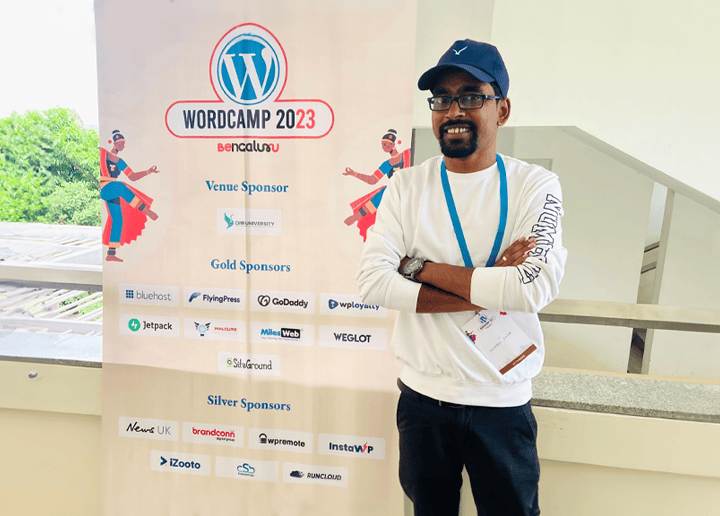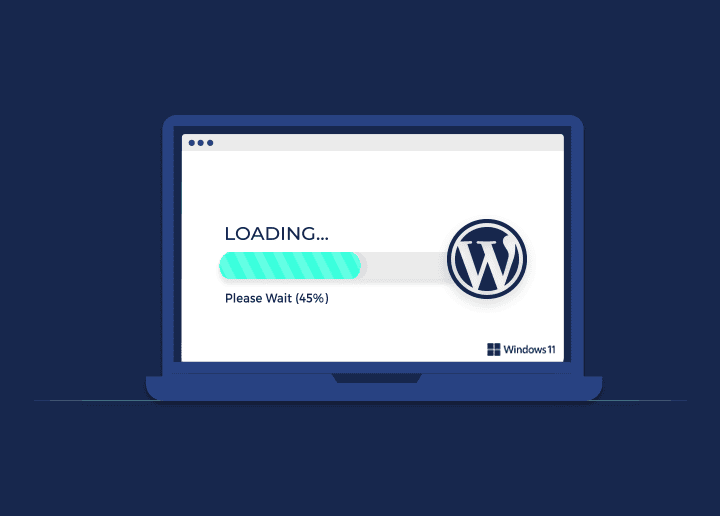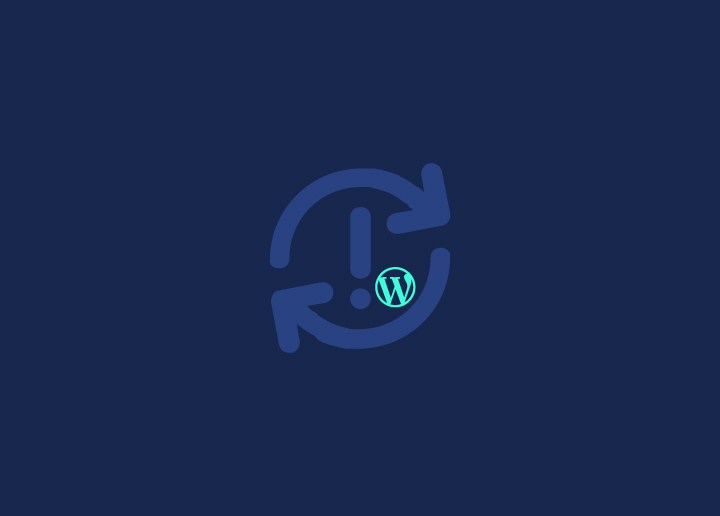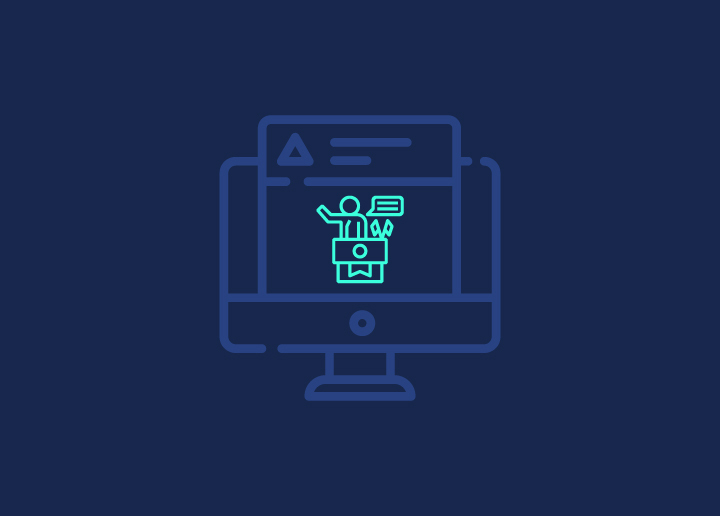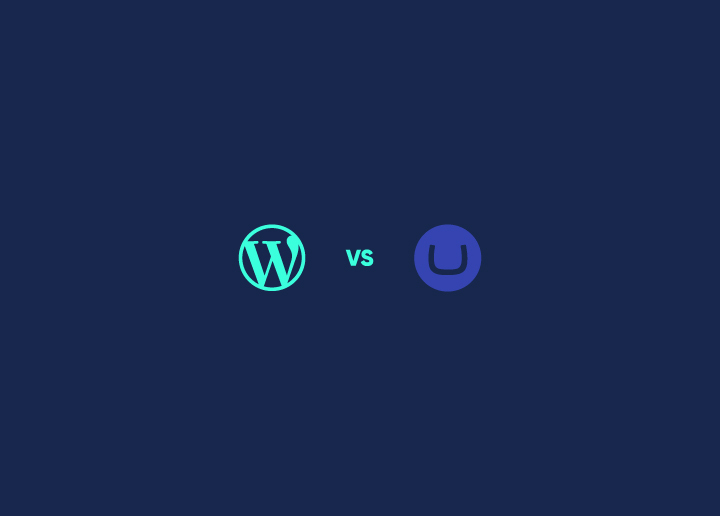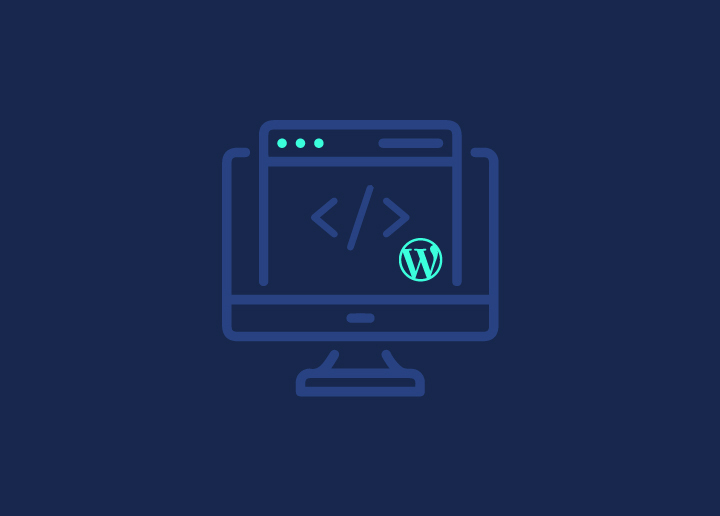Bist du bereit, die aufregende Welt der WordPress-Entwicklung zu erkunden? Dieser Blogbeitrag führt Sie durch die wesentlichen Schritte, um ein erfolgreicher WordPress-Entwickler zu werden. Vom Verständnis der Rolle, der Beherrschung technischer Fähigkeiten und der Auswahl eines Schwerpunktbereichs bis hin zur Einrichtung einer Entwicklungsumgebung, der Interaktion mit der Community, dem Aufbau Ihres Portfolios und der Vermarktung Ihrer Dienstleistungen – wir haben alles für Sie. Lassen Sie uns gemeinsam auf diese Reise gehen!
Inhalt
Umschalten aufDie Rolle eines WordPress-Entwicklers
Ein WordPress-Entwickler ist ein vielseitiger Profi, der viele Hüte trägt. Von der Erstellung benutzerdefinierter Themes und Plugins über die Optimierung von Websites bis hin zum Debuggen von Code sind ihre technischen Fähigkeiten in der Webentwicklung unverzichtbar. Ein kompetenter Webentwickler ist auch mit PHP, HTML, CSS, JavaScript und anderen Programmiersprachen vertraut.

Zu den Aufgaben eines WordPress-Entwicklers gehören:
- Erstellen von benutzerdefinierten Plugins oder Themes
- Erstellen von Sitemaps oder Wireframes
- Migrieren oder Umgestalten von Websites
- Überprüfen oder Debuggen der Codebasis
- Durchführung von Frontend- und Backend-Entwicklungen
- Kommunikation mit Kunden
- Verwaltung mehrerer Projekte
- Beratung potenzieller Kunden
- Durchführen von Support- und Wartungsaufgaben, wie z. B. Backups und Sicherheitsscans
Darüber hinaus können Entwickler auf eine umfangreiche Liste von Ressourcen zugreifen, die von anderen Theme-Entwicklern gesammelt wurden, wie z. B. Code-Referenzen, API-Handbücher und Ratschläge für die Plugin- und Theme-Entwicklung.
Mit der wachsenden Nachfrage nach WordPress-Entwicklern gab es noch nie einen besseren Zeitpunkt, um WordPress-Entwickler zu werden , indem man die technischen Aspekte und Programmiersprachen beherrscht, die für diesen aufregenden Karriereweg unerlässlich sind. Sind Sie bereit, diese Herausforderung anzunehmen?
Grundlegende Fähigkeiten für WordPress-Entwickler
Der Erwerb von Fachwissen in den folgenden Programmiersprachen ist für den Erfolg als WordPress-Entwickler unerlässlich. Diese Sprachen bilden das Rückgrat der WordPress-Entwicklung und ermöglichen es Ihnen, WordPress-Sites und WordPress-Themes mit Leichtigkeit zu erstellen, zu ändern und zu verbessern.
Die Beherrschung dieser grundlegenden Fähigkeiten versetzt Sie in die Lage, mit PHP-Dateien umzugehen, im WordPress-Repository zu navigieren und maßgeschneiderte Plugins oder Themes für Kunden zu erstellen. Darüber hinaus können Sie durch das Erlernen serverseitiger Sprachen wie PHP und clientseitiger Sprachen wie JavaScript dynamischere und ansprechendere Erfahrungen bieten.

HTML und CSS
HTML und CSS sind die Grundlage (Bausteine) der Webentwicklung, mit denen Sie Webseiten einfach strukturieren und gestalten können. Sie spielen eine entscheidende Rolle bei der WordPress-Entwicklung und sorgen für die Struktur und das Styling von Webseiten.
HTML (HyperText Markup Language) ist für die Erstellung der Struktur einer Website verantwortlich, während CSS (Cascading Style Sheets) bei der Gestaltung der HTML-Struktur hilft, indem es das Layout, die Farben und die Schriftarten steuert. Gültiges HTML ist für eine angenehme Benutzererfahrung unerlässlich und um sicherzustellen, dass die Seiten mit allen Webbrowsern kompatibel sind.
HTML5 (die neueste Version von HTML) bietet im Vergleich zu seinem Vorgänger HTML4 eine Reihe spannender Funktionen. Dazu gehören die Möglichkeit, Video und Audio einzubinden, eine verbesserte JavaScript-Kompatibilität und verschiedene neue Elemente wie Fußzeile, Kopfzeile, Spur und Zusammenfassung. Diese Fortschritte erleichtern es Entwicklern, moderne, reaktionsschnelle Websites zu erstellen, die sich an verschiedene Geräte und Bildschirmgrößen anpassen.
Die Beherrschung von HTML und CSS ermöglicht es Ihnen, beeindruckende und funktionale Websites zu erstellen, die auf die Bedürfnisse Ihrer Kunden zugeschnitten sind. Wenn Sie Ihre Fähigkeiten in diesen wichtigen Sprachen weiter verfeinern, werden Sie neue Möglichkeiten und Chancen in Ihrer WordPress-Entwicklungskarriere freischalten.
Verwandt: So entfernen Sie ungenutztes CSS in WordPress
PHP und MySQL
PHP und MySQL sind das Lebenselixier der WordPress-Entwicklung. Als primäre Sprachen, die das CMS antreiben, sind sie für die Erstellung dynamischer, datengesteuerter Websites mit der WordPress-Software unerlässlich.
PHP, eine mächtige Skriptsprache, führt Aufgaben auf dem Server aus und sendet Anfragen in Form von HTML zurück. Der WordPress-Kern selbst basiert auf PHP und MySQL, was diese Sprachen im Entwicklungsprozess unverzichtbar macht.
MySQL, ein beliebtes Datenbankmanagementsystem, ergänzt PHP, indem es die Möglichkeit bietet, Daten innerhalb einer WordPress-Site zu speichern, abzurufen und zu bearbeiten. Durch das Verständnis der Bedeutung einer PHP-Datei im WordPress-Kern können Entwickler das reibungslose Funktionieren ihrer Websites sicherstellen.
Wenn Sie sich mit PHP und MySQL auskennen, können Sie benutzerdefinierte Plugins, Themes und Module erstellen, die Ihre Fähigkeiten und Ihr Fachwissen unter Beweis stellen. Darüber hinaus ermöglichen Ihnen diese Sprachen die Arbeit mit Kernentwicklungs-, Blockeditor- und Entwicklerressourcen, wodurch Ihre Fähigkeiten als WordPress-Entwickler weiter verbessert werden.
Verwandt: So aktualisieren Sie die WordPress-PHP-Version
JavaScript und jQuery
JavaScript und jQuery sind leistungsstarke Tools, die WordPress-Websites mit dynamischen Funktionen und asynchronem Laden versehen und sie so ansprechender und nützlicher machen. Als clientseitige Sprachen ermöglichen sie es Entwicklern, interaktive Funktionen zu erstellen und die allgemeine Benutzererfahrung zu verbessern.
jQuery, eine beliebte JavaScript-Bibliothek, ermöglicht die einfache Manipulation von Webseiten, indem sie es Ihnen ermöglicht, mehrere Funktionen gleichzeitig zu verketten. Dieses leistungsstarke Tool bietet Funktionen wie:
- Ausblenden von HTML-Elementen
- Erstellen von Animationen
- Bearbeiten von CSS
- Erstellen von Schiebeeffekten
All diese Funktionen vereinfachen den Entwicklungsprozess.
AJAX, ein weiteres unschätzbares Tool in der WordPress-Entwicklung, ermöglicht das Senden oder Empfangen von Daten, ohne eine Seite vollständig neu zu laden. Durch die Nutzung von AJAX können Entwickler nahtlose Erfahrungen schaffen, die sowohl die Leistung als auch die Benutzerfreundlichkeit von WordPress-Websites verbessern, oft durch die Verwendung eines gut gestalteten WordPress-Plugins.
Wenn Sie JavaScript und jQuery beherrschen, können Sie dynamischere und ansprechendere Websites erstellen, die den Bedürfnissen Ihrer Kunden entsprechen und Sie von der Konkurrenz abheben.
Lesen: Der vollständige Leitfaden zur Einstellung eines CMS-Entwicklers
Suchen Sie einen WordPress-Entwickler, um Ihre Website zu erstellen?
Sprechen Sie noch heute mit unserem WordPress-Experten und beginnen Sie mit der Erstellung Ihrer Traumwebsite!
Wählen Sie Ihren Schwerpunktbereich in der WordPress-Entwicklung
Um sich auf den Weg zum WordPress-Entwickler zu machen, müssen Sie einen Schwerpunktbereich auswählen, der Ihren Interessen und Zielen entspricht. Die WordPress-Entwicklung umfasst drei Hauptschwerpunkte: Kernsoftware, Plugins und Themes. Die Spezialisierung auf einen bestimmten Bereich erleichtert die Verbesserung der Fähigkeiten und das Erreichen persönlicher Ziele.
Wenn Sie beispielsweise eine Leidenschaft für Website-Design haben, können Sie sich auf die Entwicklung von Themen konzentrieren, während die Plugin-Entwicklung Ihre Berufung sein könnte, wenn Sie an Funktionalität interessiert sind. Auf der anderen Seite, wenn Sie gerne tief in die technischen Aspekte von WordPress eintauchen, könnte die Arbeit mit der Kernsoftware Ihre Nische sein.
Die Wahl eines Schwerpunktbereichs ist keine Einschränkung, sondern eine Gelegenheit, sich in einem bestimmten Bereich auszuzeichnen. Wie Paul Bearne feststellte, sind viele Fähigkeiten vielseitig, wenn Sie also in einem Bereich Kenntnisse haben, können Sie sie auch auf andere Bereiche anwenden. Einen klaren Fokus zu haben, ermöglicht es Ihnen:
- Widmen Sie Ihre Zeit und Energie, um Ihr gewähltes Gebiet zu beherrschen
- Erwerben Sie Fachwissen und werden Sie zum Spezialisten
- Heben Sie sich von der Konkurrenz ab
- Bauen Sie sich einen guten Ruf in Ihrer Branche auf
- Erhöhen Sie Ihre Chancen auf beruflichen Erfolg in der WordPress-Entwicklung
Lesen Sie: Beste WordPress-Entwicklungsagenturen
Einrichten einer WordPress-Entwicklungsumgebung
Eine WordPress-Entwicklungsumgebung ist ein unschätzbares Tool, das einen privaten Bereich zum Erstellen, Entwickeln und Testen von Plugins, Themes und anderen Funktionen bietet. Das Einrichten einer Entwicklungsumgebung kann WordPress-Entwicklern erheblich zugute kommen, indem sie den WordPress-Plugin-Entwicklungsprozess beschleunigt, was zu einem qualitativ hochwertigeren Produkt führt.
Die Einrichtung einer lokalen WordPress-Entwicklungsumgebung umfasst die Verwendung von Tools wie XAMPP, MAMP oder WAMP , um einen Webserver, eine Datenbank und WordPress zu installieren. Diese Tools ermöglichen es Ihnen, lokal an Ihren Projekten zu arbeiten, ohne eine Verbindung zum Internet herstellen zu müssen, was das Testen und Experimentieren mit Ihrer Arbeit einfacher und effizienter macht.
Alternativ können Sie eine Remote-WordPress-Entwicklungsumgebung einrichten, indem Sie:
- Erstellen eines Hosting-Kontos
- WordPress installieren
Verwenden Sie Tools wie cPanel oder Plesk, um Ihr Hosting-Konto zu verwalten und WordPress schnell und einfach zu installieren.
Die Einrichtung einer Remote-Umgebung bietet die Flexibilität, von jedem Ort mit Internetverbindung aus an Ihren Projekten zu arbeiten. Unabhängig davon, ob Sie sich für eine lokale oder Remote-Entwicklungsumgebung entscheiden, wird ein dedizierter Bereich, in dem Sie an Ihren Projekten arbeiten können, zweifellos Ihre Fähigkeiten und Ihre Professionalität als WordPress-Entwickler verbessern.
Lesen: Top 6 der alternativen cPanel-Hosting-Plattform für WordPress und andere
Interaktion mit der WordPress-Community
Die Zusammenarbeit mit der WordPress-Community bietet mehrere Vorteile, darunter:
- Von erfahrenen Entwicklern lernen
- Aufbau wertvoller Beziehungen
- Bleiben Sie über die neuesten Ankündigungen und Produktveröffentlichungen auf dem Laufenden
- Schnelle Fehlerbehebung
- Aufbau von Verbindungen zu potenziellen Arbeitgebern
Sie können diese Möglichkeiten nutzen, indem Sie sich aktiv an Community-Veranstaltungen und -Diskussionen beteiligen.
Es gibt zahlreiche Möglichkeiten, sich in der WordPress-Community zu engagieren, z. B. durch die Teilnahme an Meetups, die Teilnahme an Online-Foren und die Teilnahme an Webinaren und anderen Online-Veranstaltungen. Indem du mit anderen Entwicklern in Verbindung bleibst, kannst du über die neuesten WordPress-Nachrichten und -Trends auf dem Laufenden bleiben.
Die Zusammenarbeit mit der Community bietet auch die Möglichkeit, zu Open-Source-Projekten beizutragen. Dies kann Ihnen helfen, Ihre Fähigkeiten und Ihr Fachwissen zu präsentieren und Ihr Engagement für das WordPress-Ökosystem zu demonstrieren. Durch das Einreichen von Fehlerberichten, das Schreiben von Dokumentationen und das Beitragen von Code machst du einen Unterschied in der Community und verbesserst deinen Ruf als WordPress-Entwickler.
Indem du dich aktiv mit der WordPress-Community beschäftigst, erweiterst du auch dein Wissen und deine Fähigkeiten und erweiterst dein berufliches Netzwerk, was dir neue Möglichkeiten für Wachstum und Erfolg in deiner Karriere eröffnet.
Lesen: WordPress Website-Entwicklung: Warum es wichtig ist
Erstellen Sie Ihr Portfolio und Ihren Lebenslauf
Ein beeindruckendes Portfolio und ein beeindruckender Lebenslauf sind wichtige Werkzeuge, um Ihre Fähigkeiten, Erfahrungen und Professionalität als WordPress-Entwickler hervorzuheben. Um Ihren Lebenslauf hervorzuheben, heben Sie Ihre besten Fähigkeiten, Ihre Berufserfahrung, Ihre Ausbildung und Ihre beeindruckendsten Projekte hervor. Stellen Sie sicher, dass Ihr Lebenslauf fehlerfrei und auf die Stelle zugeschnitten ist, auf die Sie sich bewerben.
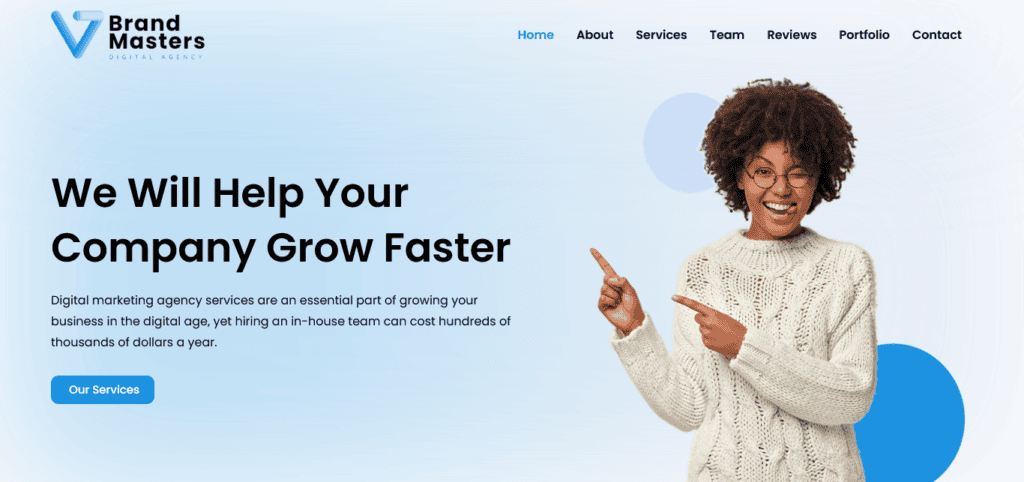
Auch wenn Sie noch nicht viel Berufserfahrung haben, können Sie Ihren Lebenslauf hervorheben, indem Sie Ihre Fähigkeiten hervorheben und Ihre persönlichen Projekte in anderen Abschnitten präsentieren. Dies zeigt Ihre Leidenschaft für die WordPress-Entwicklung und Ihr Engagement für das Lernen und Wachsen in diesem Bereich.
Ihr Portfolio sollte Ihre besten Arbeiten präsentieren, einschließlich aller Open-Source-Projekte, zu denen Sie beigetragen haben, oder persönlicher Projekte, die Sie entwickelt haben. Dies gibt potenziellen Arbeitgebern ein klares Gefühl für Ihre Fähigkeiten, Ihren Stil und Ihr Fachwissen. Stellen Sie sicher, dass Sie abwechslungsreiche Projekte einbeziehen, die Ihre Vielseitigkeit und Fähigkeiten unter Beweis stellen.
Indem Sie ein überzeugendes Portfolio und einen Lebenslauf erstellen, stellen Sie nicht nur Ihre Fähigkeiten und Erfahrungen unter Beweis, sondern erhöhen auch Ihre Chancen, Ihren Traumjob als WordPress-Entwickler zu bekommen.
Lesen: Top WordPress-Beratungsdienstleister
Vermarkten Sie Ihre WordPress-Entwicklungsdienste
Eine effektive Werbung für Ihre WordPress-Entwicklungsdienste ist der Schlüssel zur Gewinnung von Kunden und zum Karrierewachstum. Es gibt verschiedene Strategien für die Vermarktung Ihrer Dienstleistungen, wie zum Beispiel:
- Freelancing-Plattformen
- Bewerbungen
- Soziale Medien
- Community-Veranstaltungen
Freiberufliche Plattformen wie Arc und Code Mentor bieten WordPress-Entwicklern hervorragende Möglichkeiten , Arbeit zu finden und ihr Fachwissen zu präsentieren. Wenn Sie ein Profil auf diesen Plattformen erstellen, können Sie mit potenziellen Kunden in Kontakt treten und auf Projekte bieten, die Ihren Fähigkeiten und Interessen entsprechen.
Bewerbungen für WordPress-Entwickler
Bewerbungen sind eine weitere effektive Möglichkeit, Ihre Dienstleistungen zu vermarkten. Hier sind einige Tipps, um das Beste aus Bewerbungen zu machen:
- Überprüfen Sie regelmäßig Community-Einstellungsveranstaltungen, die Karriereseite von Agenturen und Jobsuchseiten auf Leads
- Passen Sie Ihren Lebenslauf und Ihr Anschreiben an jede Gelegenheit an
Dies zeigt Ihr echtes Interesse an der Stelle und erhöht Ihre Erfolgschancen.
Social-Media- und Community-Events
Soziale Medien und Community-Events sind ebenfalls leistungsstarke Marketinginstrumente. Mit diesen Strategien können Sie:
- Teilen Sie Ihre Arbeit und machen Sie auf Ihre Dienstleistungen aufmerksam
- Beteiligen Sie sich an Diskussionen und bauen Sie Beziehungen zu potenziellen Kunden und Arbeitgebern auf
- Nehmen Sie an Veranstaltungen teil, um sich zu vernetzen und mit Branchenexperten in Kontakt zu treten
Diese Aktivitäten werden nicht nur dazu beitragen, Ihr Unternehmen zu fördern, sondern auch wertvolle Verbindungen in Ihrem Bereich aufzubauen.
Durch die Umsetzung dieser Strategien sind Sie auf dem besten Weg, Ihre WordPress-Entwicklungsdienste erfolgreich zu vermarkten und Ihre Karriere voranzutreiben.
Verwandt: Die besten Websites, um WordPress-Entwickler einzustellen
Tipps für den Erfolg in der WordPress-Entwicklung
Um in Ihrer WordPress-Entwicklungskarriere erfolgreich zu sein, müssen Sie kontinuierlich lernen, sich auf eine Nische spezialisieren und mit Branchentrends Schritt halten.
Kontinuierliches Lernen
Kontinuierliches Lernen ist der Prozess des kontinuierlichen Erwerbs neuer Fähigkeiten und Kenntnisse, was in der schnelllebigen Welt der WordPress-Entwicklung von entscheidender Bedeutung ist. Indem Sie über die neuesten Trends und Technologien auf dem Laufenden bleiben, stellen Sie sicher, dass Sie Ihren Kunden immer einen Schritt voraus sind und innovative Lösungen anbieten können.
Spezialisierung auf eine Nische der Webentwicklung
Sich auf eine Nische zu spezialisieren bedeutet, sich auf einen bestimmten Bereich der WordPress-Entwicklung zu konzentrieren, um Ihre Wirkung und Ihr Fachwissen zu maximieren. Sie können außergewöhnliche Ergebnisse erzielen und sich von der Konkurrenz abheben, indem Sie Ihre Fähigkeiten in einem bestimmten Bereich verbessern, z. B. Kernsoftware, Themes oder Plugins.
Über Branchentrends auf dem Laufenden bleiben
Um über Branchentrends auf dem Laufenden zu bleiben, müssen Sie Blogs lesen, an Webinaren teilnehmen und an Online-Foren teilnehmen. Indem Sie sich über die neuesten WordPress-Versionen auf dem Laufenden halten und über neue Technologien und Tools informiert bleiben, sind Sie für jede Herausforderung gerüstet, die auf Sie zukommt.
Lesen: WordPress-Preise: Wie viel kostet eine WordPress-Website?
Zusammenfassung
In diesem Blogbeitrag haben wir die wesentlichen Schritte behandelt, um ein erfolgreicher WordPress-Entwickler zu werden.
Wichtigste Erkenntnisse
- Um ein WordPress-Entwickler zu werden, beherrschen Sie HTML, CSS, PHP und MySQL
- Spezialisieren Sie sich auf einen Bereich und richten Sie eine Entwicklungsumgebung für eine schnellere Plugin-/Theme-Entwicklung ein
- Engagieren Sie sich in der Community und vermarkten Sie Ihre Dienstleistungen, um beruflich zu wachsen
Wenn du diesen Leitfaden befolgst, bist du auf dem besten Weg, eine erfüllende und lohnende Karriere in der WordPress-Entwicklung zu beginnen. Jetzt ist es an der Zeit, dass du den ersten Schritt machst und in die Welt von WordPress eintauchst!
Häufig gestellte Fragen zur WordPress-Entwicklung für Anfänger
Um mit der WordPress-Entwicklung zu beginnen, müssen Sie sich mit den Grundlagen der Codierung vertraut machen, sich über WordPress informieren und Ihren Schwerpunkt auswählen. Erstellen Sie außerdem eine Entwicklungsumgebung zum Testen, bauen Sie ein Portfolio auf, werden Sie ein aktives Mitglied der WordPress-Community und vermarkten Sie Ihre Dienstleistungen.
WordPress ist in PHP geschrieben, der beliebtesten Programmier- und Skriptsprache, die zur Erstellung dynamischer interaktiver Websites verwendet wird. Sein Open-Source-Charakter hilft Entwicklern, schnell und einfach leistungsstarke Websites zu erstellen.
WordPress-Entwickler können ein gutes Einkommen erzielen, mit Gehältern von durchschnittlich 72.500 US-Dollar pro Jahr, und Upwork-Freiberufler verlangen zwischen 30 und 175 US-Dollar pro Stunde. Das Gehalt eines WordPress-Entwicklers ist erreichbar und die Investition wert.
Die WordPress-Entwicklung ist ein lohnender und befriedigender Karriereweg. Mit Hingabe, Geduld und den richtigen Qualifikationen könnte dies eine ausgezeichnete Wahl für diejenigen sein, die sich für WordPress begeistern.
Wählen Sie einen Schwerpunktbereich, der Ihren Zielen und Interessen entspricht, z. B. Kernsoftware, Plugins oder Themes. Konzentrieren Sie sich auf das, was Ihnen Spaß macht und was Sie am ansprechendsten finden, um das Beste aus der WordPress-Entwicklung herauszuholen.

